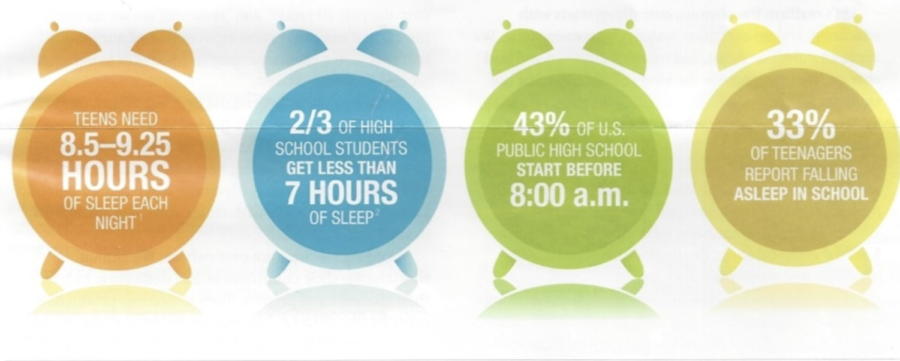Sleeping and Its Importance for High Schoolers
Lack of sleep and school start times affect teenage students’ productivity during the school day.
Here at KS, students start school at 7:40 a.m. every weekday, but everyone’s day begins earlier than that when you consider the time it takes to get ready and get to school. Although this early start time means that students end the school day earlier than many other high schools, is it worth the cost of losing out on sleep?
Research would show that it is not worth it. According to Weill Cornell Medical College, it is recommended that teenagers get at least 9 hours of sleep every night as this contributes to physical and mental well-being. Sleep has been linked to our immune system, emotional and mental development, and academic performance. Getting the right amount of sleep can also improve attention span, memory, and cognitive abilities, which are all important in having a productive day at school. Meanwhile, a lack of sleep can lead to excessive drowsiness, lack of attention, and poorer academic and athletic performance. On a more serious note, less sleep can also increase rates of depression, behavioral problems, and a variety of health issues.
Studies have been conducted to see if adjusting school start times would help students get a better night’s rest. On average, most high schools in the U.S. start around 8 a.m., which is later than the KS start time. It was found that pushing back start times by 30 minutes to an hour greatly improved students’ academic success. Many students also reported feeling less sleep deprived and more energized at school.
It is easy to see the benefits of enough rest, but how realistic is it for students to get the recommended amount of sleep every night? It has been proven that biologically, teenagers tend to stay up later than when they were in elementary or middle school due to chemical changes in their bodies. Other factors that contribute to a lack of sleep include large amounts of homework, extracurricular activities, a busy social life, jobs, excessive use of electronic devices, and early start times for school.
While students can’t control how busy their lives are, there are solutions to try and get more sleep at night. When it comes to schoolwork, students can try to use any free time they have during the day to get as much work done as possible. Getting at least an hour of physical activity during the day can also help you sleep better. Moreover, setting a nighttime routine for yourself can help instill good habits. This could include stretching, setting a time to go to bed every night, and turning on blue-light settings on devices and avoiding using devices an hour before bed. By valuing your sleep, you are helping yourself in many different aspects of your life, including at school.

EMAIL: [email protected]
Aloha! Iʻm Auliʻi Anuenue Medeiros and am from the Kailua-Kaneohe area of the island. This year I am a senior and am excited for my first year with Ka Mōʻī. I chose to join this class because I have an interest in writing and wanted to see if journalism was the right path for me. Besides writing, I enjoy reading, listening to music, dancing, surfing, and doing all kinds of sports. Outside of school, you can often find me at the beach, working out at the gym, or just hanging out with friends and family. I am excited to be on this year’s Ka Mōʻī staff and am looking forward to all of the stories we are going to be able to share :)


